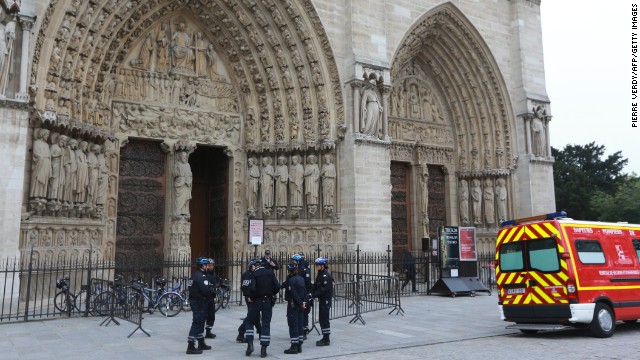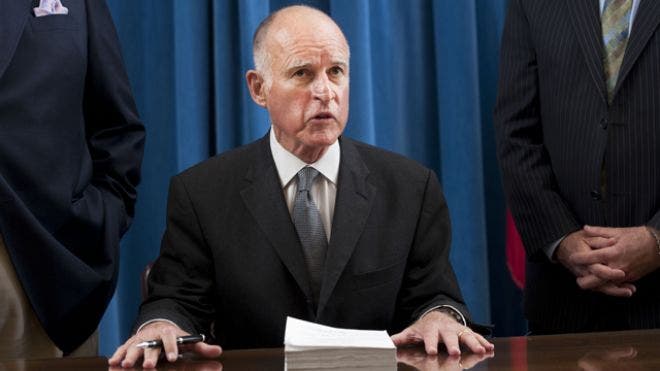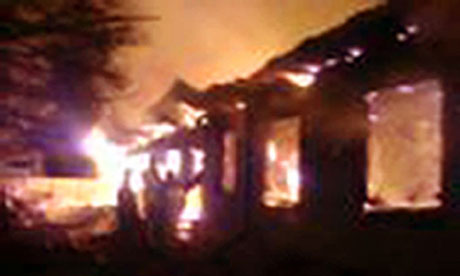“Welcome, living martyr, Jalili,” the audience shouted in unison, most of them too young to have witnessed the bloody conflict themselves but deeply immersed in the national veneration of its veterans. Waving flags belonging to “the resistance” — the military cooperation among Iran, Syria, the Lebanese Shiite group Hezbollah and some Palestinian groups — the crowd roared the candidate’s election slogan: “No compromise. No submission. Only Jalili.”
Mr. Jalili, known as Iran’s unyielding nuclear negotiator and a protégé of the supreme leader, Ayatollah Ali Khamenei, is emerging as the presumed front-runner in Iran’s presidential election on June 14, an unsettling prospect for future relations with the West. Mr. Jalili, 47, who many analysts say has long been groomed for a top position in Iran, is by far the most outspoken hard-liner among the eight candidates approved to participate in the election.
Opposing “détente a hundred percent” and promising no compromise “whatsoever” with the West over matters like Iran’s nuclear program and involvement in Syria, Mr. Jalili seems set to further escalate Iran’s standoff with the United States and its allies if elected president.
“He seems to be Ahmadinejad Phase 2,” said Rasool Nafisi, an Iran expert based in Virginia, referring to Iran’s current president, Mahmoud Ahmadinejad. “He would probably not be a partner to negotiate for the nuclear issues, as we have seen before when he was heading the delegations.”
An analyst based in Iran, who asked to remain anonymous for fear of reprisals, said Mr. Jalili was “the perfect follower of Khamenei.”
“If he gets elected I foresee even more isolation and conflict, as he doesn’t care about foreign relations, the economy or anything,” the analyst said.
In recent weeks, Mr. Jalili has garnered the open support of Iran’s governing establishment, a coalition of conservative clerics and Revolutionary Guards commanders known as the traditionalists. High-ranking Shiite Muslim clerics have begun speaking out in his favor, and a nationwide network of paramilitary volunteers, the basij, is now helping to organize his election campaign.
He has been featured in flattering terms in recent weeks in the semiofficial Fars news agency, which is connected to the Revolutionary Guards, as well as in dozens of Web sites and other news outlets. By contrast, the other candidates now sometimes discover their campaign appearances canceled for unclear reasons and often find themselves under sharp attack in interviews on state TV, while Mr. Jalili gets softball questions.
“He’ll easily get 30 percent of the vote,” said Amir Mohebbian, an analyst close to Iran’s leaders, pointing to the well-organized groups supporting Mr. Jalili. “The remainder will be divided between the other candidates.”
That would lead to a runoff election that Mr. Jalili would be heavily favored to win, since under Iranian law the president must receive at least half of the vote.
Iran’s presidential elections, lacking independent opinion polls and subject to manipulation, are notoriously unpredictable. In 2005, Mr. Ahmadinejad came out of nowhere to win. In 2009, millions of people took to the streets to protest what they said was widespread fraud in the voting that returned Mr. Ahmadinejad to office over the more popular opposition candidate, Mir Hussein Moussavi.
But the major threats to Mr. Jalili’s candidacy were apparently eliminated when the representatives of two influential political factions, one led by Mr. Ahmadinejad and the other by a former president, Ali Akbar Hashemi Rafsanjani, were disqualified from the election by the conservative-dominated Guardian Council. That decision underscored not just the determination of the traditionalists to consolidate power, but their ability to ensure the result.
In a recent opinion article, Mr. Mohebbian said that while Mr. Jalili’s relative inexperience in domestic politics might make him appear as an outsider, the support of Iran’s governing establishment made it likely that “the conditions of the day will create an atmosphere which will put Mr. Jalili in a leadership position.”
While Ayatollah Khamenei is officially neutral, Mr. Jalili’s speeches and viewpoints closely resemble the leader’s worldview of an Iran engaged in a multifaceted battle with the West.
“The best president,” Mr. Khamenei said on Monday, speaking to students at a military academy, “is the one who powerfully resists the enemy and will turn the Islamic republic into an international example for the oppressed people of the world.”
Mr. Jalili, who sports a gray beard and prefers collarless shirts, headed Ayatollah Khamenei’s office for four years, starting in 2001, before emerging in recent years as the chief nuclear negotiator. But little is known about his views on other issues.
“Mr. Jalili is like a watermelon,” said Mohammad Khoshchehreh, an economist and professor at Tehran University. “He looks ripe on the outside, but we don’t know what color he is inside.”
Partly because of Western sanctions, Iran’s economy is reeling from high inflation and a battered currency, but Mr. Jalili has addressed the problems only obliquely. During a televised interview on Sunday he said that Iran should cut its dependency on oil revenues and establish a “resistance economy in order to foil the conspiracies against Iran.”
Such talk has left economists baffled. “His theory of resistance economy doesn’t mean anything,” Mr. Khoshchehreh said. “If it is based on looking at our weak points, that can be good, but we have no idea if he has a deep knowledge. We are worried about him.”
On Friday, during the campaign event in Tehran, Mr. Jalili chose to explain his policies by citing the first imam of the Shiites, the martyr Ali.
“All across the region we can hear our battle cry, ‘Ya Ali,’ ” said Mr. Jalili, who wrote a dissertation on the Prophet Muhammad’s foreign policy. “We heard it in Lebanon with the victory of Hezbollah. We hear it in our resistance against the Zionist regime. Time and time again we have proved our strength through this slogan.”
As songs played memorializing the battles in the border town of Shalamcheh during the Iran-Iraq war, men punched their fists in the air and shouted, “The blood in our veins belongs to our leader.”
The goal of Iran and its allies, Mr. Jalili said, is to “uproot capitalism, Zionism and Communism, and promote the discourse of pure Islam in the world.”
He did not directly mention the Western sanctions that were imposed over the country’s nuclear program — which Iran insists is for peaceful purposes but the West says is a cover for developing nuclear weapons — or the possibility that they will be tightened in response to Tehran’s intransigence. Nor did he speak about the potential for deeper involvement in the Syrian civil war, where Tehran’s proxy, Hezbollah, has recently intervened in support of the Syrian government.
If his supporters harbored worries over what these policies might mean for the Iranian economy, they kept them to themselves. “We are fighting an ideological war — nobody cares about the economy,” said Amir Qoroqchi, 25, a smiling electrical engineering student from the holy city of Qum. “The only thing that matters is resistance.”
For decades, Iran’s presidents have staked out an alternative power center, frequently in conflict with the supreme leader and the more conservative elements in the government. With the rise of Mr. Jalili and the apparent elimination of serious opposition candidates, those on the losing end of Iran’s political spectrum fear a developing imbalance.
The republican and authoritarian religious parts of the government “have been in conflict from Day 1,” Mr. Nafisi, the Iran expert, said.

 Camille Joseph, a former aide to Sen. Kirsten Gillibrand and a veteran of President Obama’s campaigns, has been hired as political director of
Camille Joseph, a former aide to Sen. Kirsten Gillibrand and a veteran of President Obama’s campaigns, has been hired as political director of 







